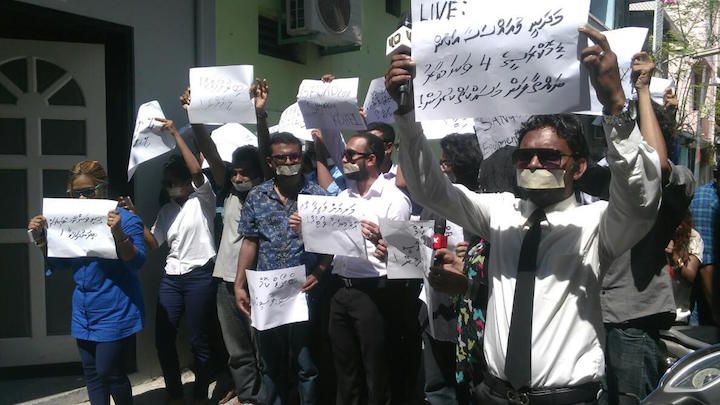Defamation penalties for the press detailed in new regulation
The government has published a regulation detailing fine bands for media offices and journalists found guilty of flouting a controversial defamation law

16 Nov 2016, 09:00
The government has published a detailed regulation on imposing fines against journalists and media outlets found guilty of flouting a controversial defamation law.
The Maldives Broadcasting Commission and the Maldives Media Council are vested with the authority to take action against broadcasters and print and online media, respectively, according to the regulation published Monday by the Attorney General’s Office.
The MBC is appointed by the parliament, dominated by the ruling party, while members to the MMC is elected by journalists.
The Defamation and Freedom of Expression Act sets separate fines for the journalist who writes the defamatory article and the media outlet that publishes it. Failure to pay the fines could result in a jail term up to six months for the journalist and the closure of the media outlet.
Become a member
Get full access to our archive and personalise your experience.
Already a member?
Discussion
No comments yet. Be the first to share your thoughts!
No comments yet. Be the first to join the conversation!
Join the Conversation
Sign in to share your thoughts under an alias and take part in the discussion. Independent journalism thrives on open, respectful debate — your voice matters.




